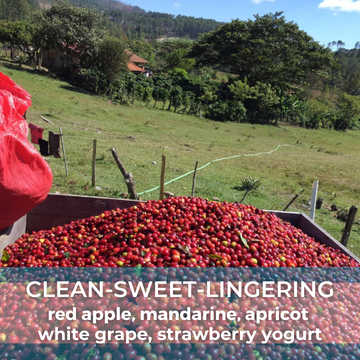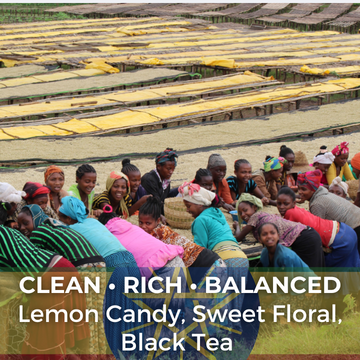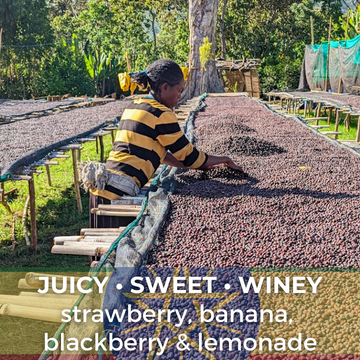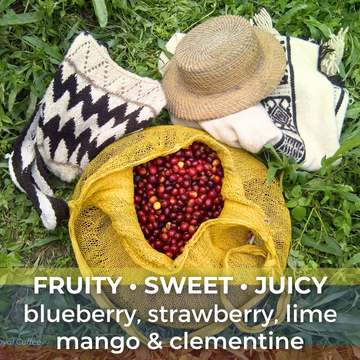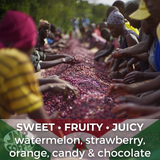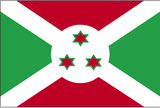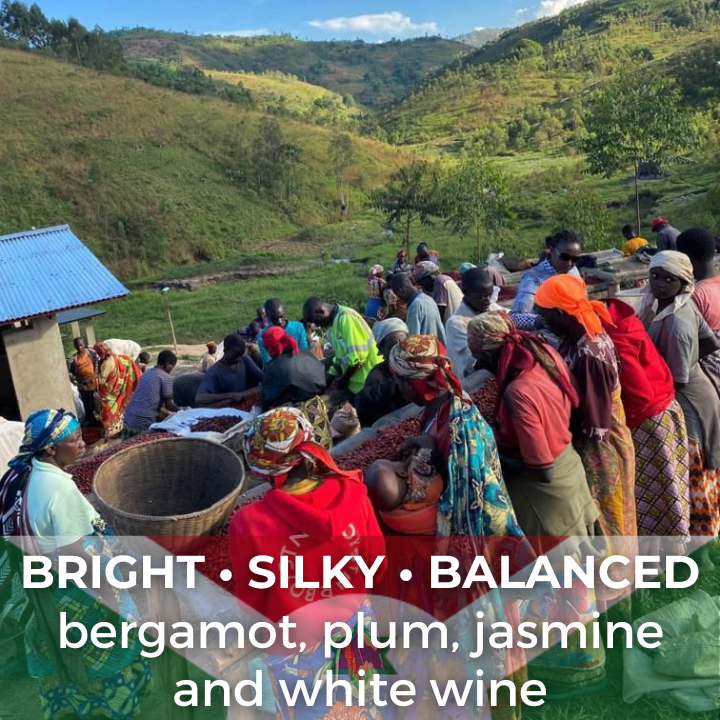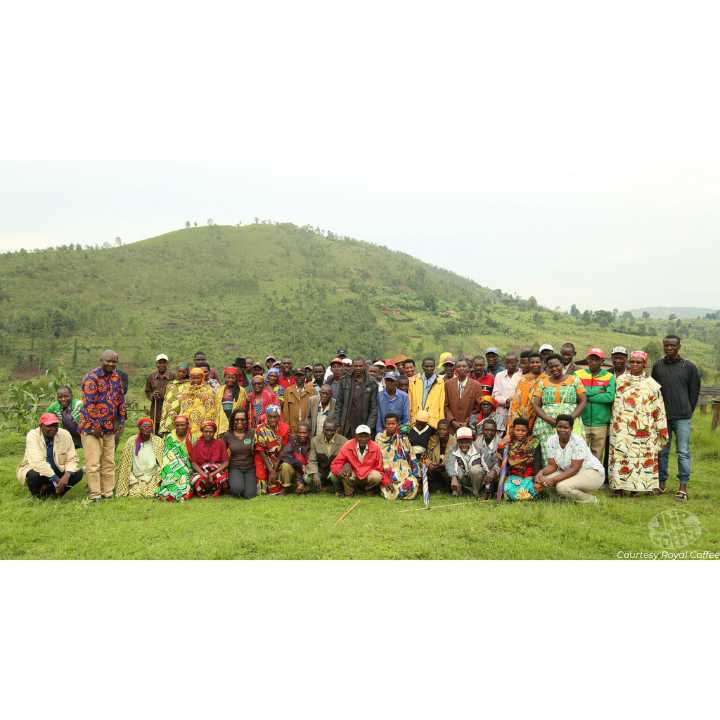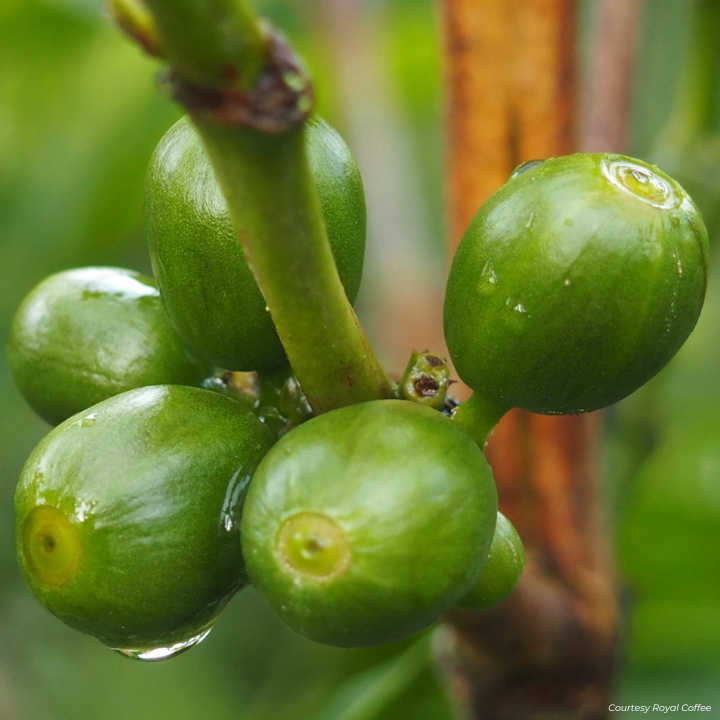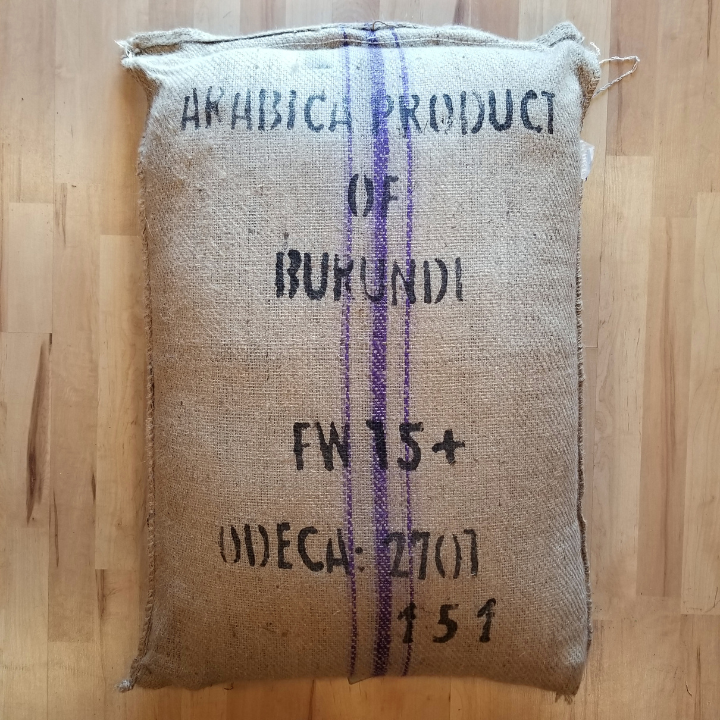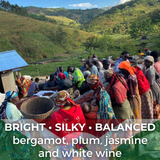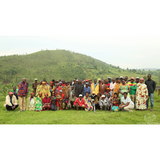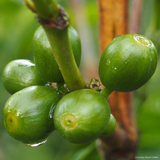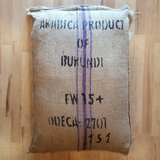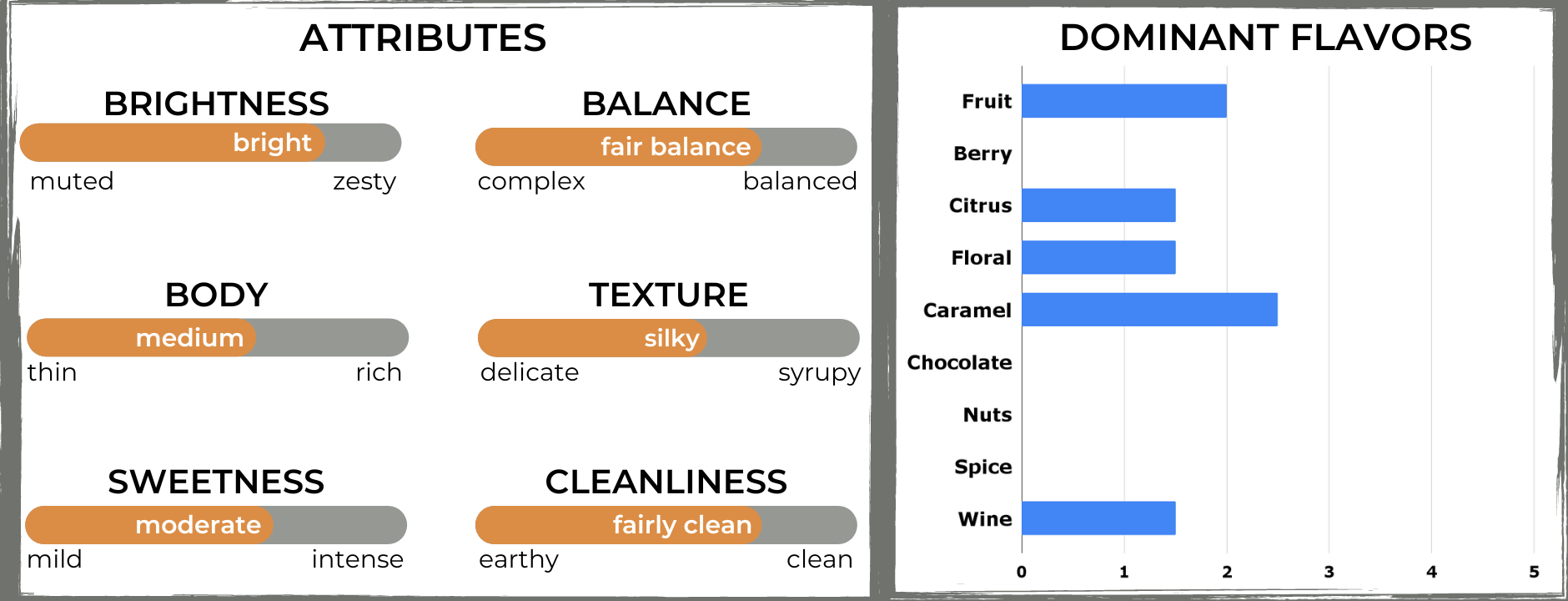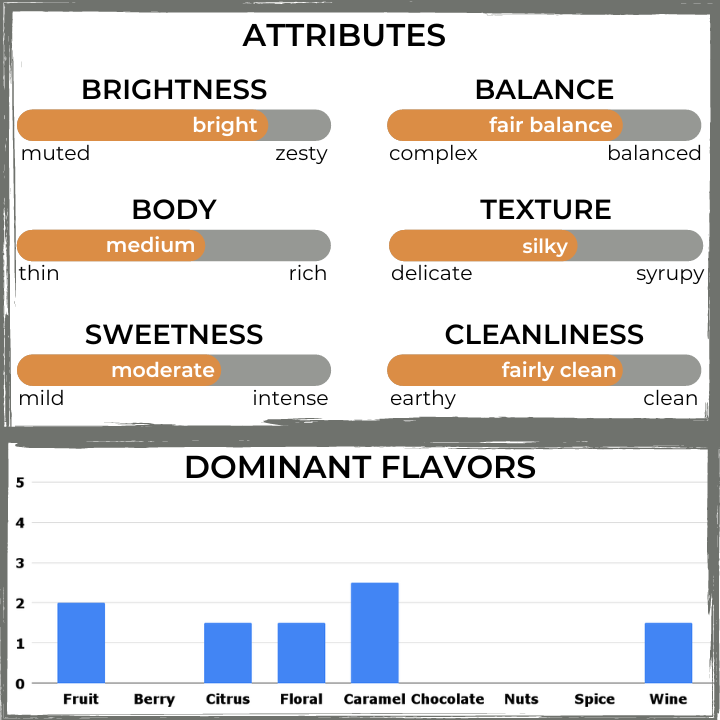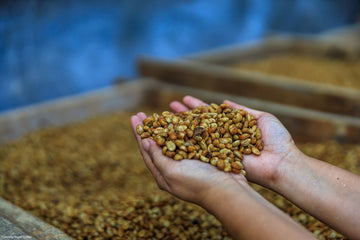Burundi Ngozi Bahire Washed
This Royal Crown Jewel is like a medley of the most popular coffee flavors and attributes you’ll experience across fully washed coffees in Africa. From Kenya there’s a slight white wine character, found most notably in the dry, tannic finish. From Ethiopia, we get a tea-like, silky body with notes of bergamot, plum and jasmine. And from both we’ve got crisp acidity and delicate sweetness.
This coffee is a study in range. It’s like a mashup or medley of the most popular coffee flavors and attributes you’ll experience across fully washed coffees in Africa. From Kenya there’s a slight white wine character, found most notably in the dry, tannic finish. From Ethiopia, we get a tea-like, silky body with notes of bergamot, plum and jasmine. And from both we’ve got crisp acidity and delicate sweetness. Depending on roast level, you may even get some savory, herby notes just for good measure! In one sample, we noted sun-dried tomato.
Reminder! This coffee is raw, you must roast it before brewing
Arrival Date: June 12th, 2022 . US Arrival: June 2022. Packed in GrainPro
Acidity & Brightness: Crisp acidity and delicate sweetness
Balance & Finish: Fairly balanced with a dry, tannic finish
Body & Texture: Medium tea-like body and silky
Flavors: Bergamot, plum and jasmine with a hint of sun dried tomato and white wine
Grade: Grown at 1800 masl
Processing: Fully washed and dried on raised beds
Grower: Smallholder farmers organized around the Bahire coffee washing station
Region: Ngozi Province
Varieties: Local bourbon cultivars
Recommended Roast Range: City to Full City (Light to medium)
Start at City (light) or just in to a rolling first crack and go a bit darker as desired. We find it best not to go any darker than Full City (Medium, after the end of first crack) and most folks will prefer a City + or at the tail end of first crack. This coffee changes a fair amount depending on roast level. Light roasts will have more acidity and drier finish while medium roasts will accentuate more rounded sweetness and a touch more body.
Royal Coffee - "Jeanine Niyonzima-Aroian, the founder of JNP Coffees, is without a doubt one of the most influential individuals in Burundi coffee today. Raised in the capital city of Bujumbura, Jeanine would go on to earn an MBA from Northwestern University’s prestigious Kellogg School, cycle through corporate America, and eventually reconnect with her birth country by founding Burundi Friends International, a not-for-profit funding educational and economic empowerment programs for rural Burundians, which is now in its 13th year. After a few years marketing Burundi coffees stateside for friends and family, Jeanine realized she had every reason to lead the business, and JNP Coffee was born. JNP Coffee is highly focused on women’s empowerment, and along with a few local women’s rights advocates, formulated the Burundi chapter of the International Women’s Coffee Alliance. The IWCA value chain has been so impactful over the years that JNP has created additional programs to expand their farmer base and generate premiums not just for women farmers, but for everyone involved. Producer groups of women and men alike, such as this one, can qualify for JNP’s new “DushimeTM” program, which delivers the same kind of post-harvest premiums as IWCA has since 2013. It seems they can’t expand fast enough. In Kayanza and Ngozi, the two provinces at the heart of the nation’s coffee production, competition for cherry can be fierce, so washing stations may pay well above the country’s minimum price to court premium harvests. JNP coffee goes a step further, returning second payments to farmers and investing in opportunities for education and community building. Coffee grown in Ngozi Province has a special meaning for Jeanine, as that is where her mother grew up. Memories of her mother, leading the family’s coffee harvest to cover school fees, are woven into the name for this coffee. Bahire in Kirundi is a kind of well-wishing given to others that roughly translates to “be well, successful, prosperous, happy”. Bahire is a micro-community of smallholders selected from within one of JNP’s larger communities, Bavyeyi, thanks to their unique terroir. The producer group works closely with JNP Coffee’s trained Q Graders in Burundi on best quality practices and lot curation. Fully washed processing for members of the Bahire group is as detailed as anywhere in Burundi where the best coffees are produced. Cherry is floated for density and visible defects prior to depulping and under-water fermentation. After fermentation is complete the wet parchment is sorted by density in concrete washing channels. Drying takes place at first under shade, and then in open air with the parchment piled into pyramids, which are flattened and re-shaped each day as a form of incremental air exposure to slowly and evenly dry the coffee and lock in the final moisture.
